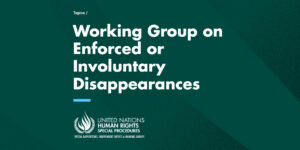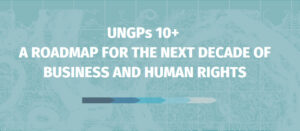I recently met with Human Rights Defenders (HRDs) from Uzbekistan: Tatiana Davlatova, Klara Sakharova, Nadejda Atayeva, Farida Sharifullina, Shukhrat Ganiev, Rakhim Khojaev, Murat Ubiniyazov, and several others, whose names cannot be disclosed for safety reasons.
The defenders I spoke to were from different parts of the country – from Tashkent and Bukhara to Nukus and other places – and some work in exile.
I heard from those working with vulnerable groups, such as children and older people, LGBTIQ+ persons, people with disabilities, ethnic and religious minorities, labour migrants, detainees and convicts. HRDs also told me about their work in human rights journalism, improvement of the judiciary and law enforcement, countering house demolitions and forced evictions, and preserving Uzbekistan’s unique historical heritage.
Despite the importance of their work, Uzbekistani Human Rights Defenders unfortunately continue to face obstacles and marginalisation from the authorities.
I have been hearing about difficulties with registering independent NGOs and media outlets in Uzbekistan for many years, and it is disappointing that this practice persists. The lack of official registration goes hand in hand with other problems, such as the inability to open a bank account, attract financing, and hire employees. I learned about new funding restrictions and the existence of special committees at banks, reportedly staffed with law enforcement officials, which decide who can receive grants. At the same time, Human Rights Defenders have to buy even basic things like paper with their personal money.
Freedom of association and access to funding are fundamental rights needed to carry out human rights work. I hope to see Uzbekistan’s efforts to improve the situation and urge international partners and donors to be mindful of these difficulties in the meantime.
I was disturbed to hear that some Human Rights Defenders have to hold solo pickets at the doors of government agencies to request an appointment. Moreover, instead of listening to the defenders, the officials reportedly call these “unlawful manifestations” and apply administrative penalties. They also allegedly wiretap the defenders, restrict their freedom of movement, intimidate their family members, and widely criminalise HRDs in Uzbekistan and exile.
I was deeply concerned by the reports about the impunity for threats and attacks against HRDs and their family members.
On a related note, it was also alarming to learn that the government had not disclosed the full number of people detained, wounded, and killed during the dispersal of protests in Karakalpakstan. Some of these people were allegedly Human Rights Defenders, and I will be following the developments expecting to see complete information, including about the investigations and accountability of responsible officials.
Among many other issues raised at the meeting, I was particularly concerned about the situation of Women Human Rights Defenders. Despite their enormous contribution to the protection of human rights, they are reportedly being increasingly subjected to smear campaigns, detention, and physical and sexualised violence, and their children get ill-treated in retaliation for their work.
Finally, I hope that Uzbekistan will soon decriminalise consensual same-sex relationships and this will cease to be an obstacle to the inclusion of LGBTIQ+ rights experts in human rights discussions.
The persistence with which HRDs have been advocating for human rights for decades despite all these risks is inspiring and contagious. I urge Uzbekistan’s government to be more receptive to Human Rights Defenders’ views on the present problems and their root causes. My mandate, in turn, will continue to deepen relationships with Uzbekistani defenders and follow up on their complaints.



